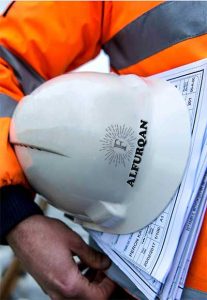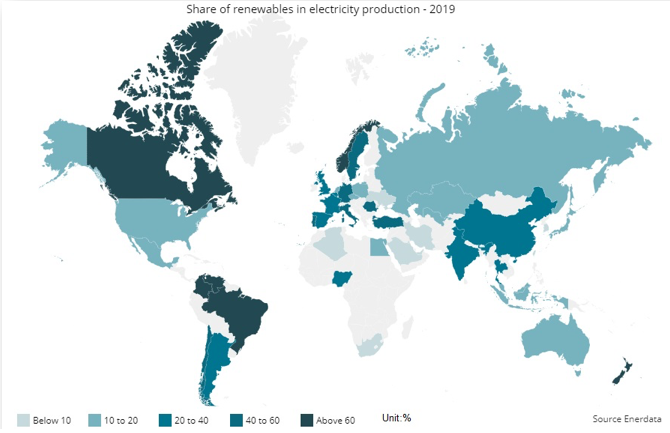Our business concepts demonstrate our commitment to our employees, stakeholders, communities and the future of our planet. Click on the headings below to read more.
 Our business model focuses on bringing global business markets and connect them. From different aspects, sectors, and industries we try our best to achieve our philosophy through this business concept and model.
Our business model focuses on bringing global business markets and connect them. From different aspects, sectors, and industries we try our best to achieve our philosophy through this business concept and model.
Our Business Principles:
 ALFURQAN’s Code of Conduct (“The Code”) outlines the principles and core values to which all employees are required to adhere. The Code re-affirms our commitment to upholding the highest ethical standards at all times.
ALFURQAN’s Code of Conduct (“The Code”) outlines the principles and core values to which all employees are required to adhere. The Code re-affirms our commitment to upholding the highest ethical standards at all times.
The Code clearly defines expected behaviours and provides guidance to employees as to ALFURQAN’S principles and how and what employees should escalate to Compliance and or Management. We are on an objective of continuous development of the human capital, productive investments in the country and optimal service standards with the highest ethical values integrating and attaining sustainable performance.
The Code of Conduct serves as the hallmark of our commitment to ensuring that all employees maintain the highest level of integrity and transparency in the performance of their individual and collective roles and responsibilities.
In all of our businesses, we expect the partners that we work with to operate to international standards in all areas and to share our commitment to full compliance with our Code of Conduct.
ALFURQAN has a whistleblowing policy and procedure, which allows any individual within the organization to raise a concern (as well as setting out the expectation for them to do so) about a situation that might represent a breach of our Code of Conduct or any other company policy. Concerns can be brought to the person’s immediate supervisor, another appropriate manager, the local Compliance Officer, or reported to the company’s ethic’s hotline (by either email or phone).
The company has in place a clear policy of no retaliation for any issues reported in good faith. The company ‘Compliance and Management’ team are committed to ensuring any issues reported are seriously taken, and then followed through to resolution.
1. Relationship with Suppliers and Contractors
Suppliers shall receive a fair and respectful treatment. Consequently, they may under no circumstances be insulted, defamed or treated with disrespect.
The selection and hiring of suppliers shall always be based on technical, professional, ethical and economic criteria, taking into consideration ALFURQAN needs, and shall always be conducted through the applicable predefined processes.
Professional secrecy shall be kept in all matters related to the hiring of third parties or suppliers; in this sense, offers submitted by bidders shall not be revealed in order to guarantee equal hiring opportunities. All actions shall be conducted with integrity and impartiality, keeping the independence of opinion on the pricing and purchase of products and services.
ALFURQAN shall not directly or indirectly hire companies or individuals having a background of fraudulent conduct, money laundering or terrorist financing activities, practices contrary to the FCPA (United States Foreign Corrupt Practices Act), or companies registered with the REPSAL (Public Register of Employers with Labor Sanctions).
2. Relationships with the Public Sector
ALFURQAN is committed to abiding by all applicable anti-corruption laws (including the US Foreign Corrupt Practices Act – Law against Corrupt Practices outside the United States). Therefore, it prohibits the offering or giving, either directly or indirectly, of any item of value to a Government officer, including an employee of any state-owned company, in order to influence any act or decision in a way favorable to ALFURQAN.
In addition, ALFURQAN’s employees shall ensure that any agents engaged to perform business activities on behalf of the Company are trustworthy and also comply with these rules.
3. Breaches of the Code
The violation of the Code’s provisions may give rise to the application of disciplinary sanctions and/or corrective measures, up to and including the termination of employment. Breaches of this Code may also constitute a violation of the applicable laws and result in the imposition of administrative, civil and/or criminal penalties on the Staff and/or ALFURQAN.
Ignorance of this Code of Business Conduct may not be alleged, and no infringements thereof may be authorized, consented to or tolerated. Employees reporting in good faith a situation they deem contrary to the principles of this Code or any applicable law shall not be punished or suffer any kind of retaliation as a result thereof.
4. Statement of acceptance
The Human Resources Division shall be responsible for notifying this Code of Business Conduct to all ALFURQAN’s employees and for requiring the confirmation of its reception and acceptance, as well as the execution of all its Exhibits.
ALFURQAN reserves the right to amend the content of the Code and/or its Exhibits, and to request any employee, officer or contractor to sign and submit the form when joining the Company or at any other time in case of amendment.
In the communities where AL FURQAN operates, where possible it employs local people to manage and run its facilities. We believe this would help to create more sustainable businesses that are beneficial to the local community as well as being commercially sensible. Local facility and business operations are tasked with and manage their day-to-day operations.
The local operations’ management is tasked with the appropriate evaluation of risks, and development of appropriate mitigating practices through appropriate engineering designs, work practices, employee training, and appropriate use of protective equipment, while the company demands prudent and careful operations, events have occurred where certain systems or practices failed. Our performance matrix contains the aforementioned aspects as calibrating tools besides the:
 Those main consideration aspects that can effectively control the company performance that allow professional people to measure the project’s strategy and its implementation methods in terms of success or failure achievement.
Those main consideration aspects that can effectively control the company performance that allow professional people to measure the project’s strategy and its implementation methods in terms of success or failure achievement.
 ALFURQAN is very glad to perform as a responsible corporate in all of its activities around the world. The company manages its activities with the highest regard for the wellbeing of people, places, and the environment as we consider ourselves as a part of the world’s transition towards a greener economy.
ALFURQAN is very glad to perform as a responsible corporate in all of its activities around the world. The company manages its activities with the highest regard for the wellbeing of people, places, and the environment as we consider ourselves as a part of the world’s transition towards a greener economy.
We highly consider using materials that include environmental products into any project’s portfolio as the various markets began to develop. We at ALFURQAN pay high attention to contribute to any possible investment project that focuses on sustainable biofuel refining that encourages the use of carbon-neutral fuels.
At ALFURQAN, we pride ourselves on our compliance culture and have spent years developing the controls and due diligence aspects of our business; we are committed to providing a safe working environment for our employees around the world. We take very seriously our role in the assigned business sectors and recognize that there are areas where we can add real value and expertise to help to make people’s lives better & safer. We are also committed to assisting in the global transition to greener and cleaner energy, we recognize that a smooth transition is complex and we feel that we are well-positioned and can bring valuable experience and knowledge to positively contribute.
The activities undertaken are managed to the highest environmental, health, and safety standards as we are very enthusiastic about environmental sustainability so that we act responsibly in all of its activities and strives to be a leader in good corporate practice.
ALFURQAN adopts and adheres to ‘best in class’ standards in addition to ensuring compliance with the many rigorous regulatory regimes. Integrated with this vision and with our expectation of compliance, we create through our employee training and an internal system of governance policies; a framework to guide our business conduct around the globe.
At ALFURQAN, we feel it is important not to be complacent and to continuously look at how we can improve and enhance everything we do; as we will always strive to do better. We are trying our best to invest more in our technology and infrastructure to better systematic tracking of our KPIs, which will enable we continue to make improvements and report on our activities.
We firmly believe that, as a company, our culture is our most defining asset. The management team recognizes the importance of setting the right tone and ensuring that all employees feel empowered to provide feedback and challenge thought processes and existing practices. Our reputation is everything, we feel strongly about being a positive participant in the global markets where we want our people to feel proud to work for ALFURQAN, for these reasons compliance and best ethical practices are central to all of our activities and our decisions.
ALFURQAN’s social responsibility projects are managed with the objective to help the society to create a progressive future; a modern lifestyle. We launches and carries out a variety of corporate social responsibility and sponsorship projects, particularly focused on culture and arts, sports and education. Aware of its responsibilities in all the areas it supports, ALFURQAN acts with the vision of leading the community by example, and contributes to the economy and employment through its investments.
 We invest in the future. The future of the world…In improving the lives and increasing the living standards of its people… We wish to allow our children to grow with sports and arts and become the architects of our tomorrow.
We invest in the future. The future of the world…In improving the lives and increasing the living standards of its people… We wish to allow our children to grow with sports and arts and become the architects of our tomorrow.
We wish to preserve the rich history of multiple cultures and pass it on to future generations. It is these goals that have brought ALFURQAN the proud achievement of becoming one of the world’s biggest investors in corporate responsibility efforts. All our endeavours have but one goal: to help people to achieve an inherently better future.
We wish to leave our touch in people’s lives. With corporate responsibility projects, we undertake in a variety of areas, we are returning to society what we have earned. We support the establishment of a modern lifestyle as we blaze towards a more modern future, together. The overarching motto of our projects, “A Good Future by ALFURQAN” was born to make these goals a reality.
For us, it is not a mere tagline to our logo; it is the foundation of all of our projects.
 AL FURQAN has a responsibility to contribute to and respect the communities in which it operates. We are committed to conduct our business ethically and responsibly and always with consideration of the local community.
AL FURQAN has a responsibility to contribute to and respect the communities in which it operates. We are committed to conduct our business ethically and responsibly and always with consideration of the local community.
In the communities where we operate, we employ local people to manage and run our facilities. This helps to create more sustainable businesses and operate our activities in an empathetic manner.
ALFURQAN’S HSE PRINCIPLES
AL FURQAN’s values concerning health and safety
We manage the activities that we undertake, to the highest environmental, health, and safety standards. AL FURQAN conducts HSE due diligence on assets before any step of acquiring or investing as we have dedicated HSE resources across the company and within each business whose responsibility is to ensure HSE compliance.
The company will continually target an improving approach for its Health, Safety, and Environmental procedures and performance metrics on an on-going basis. Our commitment to ensuring a healthy and safe environment for all of our employees and contractors is continuously at the forefront of our business, procedures, decisions, and activities.
The activities we undertake are managed to the highest environmental, health, and safety standards. The company operates its businesses under a set of Health, Safety, and Environmental Principles and complies with all relevant laws and regulations. We select business partners whom we believe share our commitment to act responsibly and in consideration of HSE risks. The infrastructure that we use goes through our due diligence processes. Our employees have the right to work in a safe and healthy environment. Our company and assets conform to industry Health, Safety, and Environmental standards and regulations and, where appropriate, have a dedicated HSE team responsible for the implementation of and compliance with AL FURQAN’s HSE policies and procedures.
We expect all of our business partners to operate to high Health, Safety, and Environmental business standards.
 Our Company spends considerable time and effort to gauge and evaluate the potential for Environmental Risk and to determine that appropriate measures are in place to appropriately guard against or mitigate those risks. The measures are taken span a wide range of topics, as appropriate to the specifics of the Business activities to be undertaken. For example, the programs we undertake in place are explained further below.
Our Company spends considerable time and effort to gauge and evaluate the potential for Environmental Risk and to determine that appropriate measures are in place to appropriately guard against or mitigate those risks. The measures are taken span a wide range of topics, as appropriate to the specifics of the Business activities to be undertaken. For example, the programs we undertake in place are explained further below.
Pre-planning and resource identification to assure quick response to oil spill accidents. This includes memberships with the various response and spill remediation organizations whose physical assets and personnel are staged in several locations around the world. Coupled to these are emergency notification phone numbers to which events can be reported. All calls will be answered by a live person who can connect with near universal language translation services and can not only provide immediate information about the accident but will also actively ensure that notification is provided to appropriate ALFURQAN’s staff as may be needed to address a situation wherever the accident is linked to any of our activities.
Emission Inventories, Discharge Monitoring, and Greenhouse Gas Reporting:
Specific to each business or operation, the local management also regularly monitor and advise upon developing regulations and standards. In this manner, our company strives to ensure its businesses and operations are not only compliant with existing standards or obligations but are actively engaged in looking at future improvements.
As appropriate to each business or operation, the local operations maintain day-to-day tracking of attributes related to the specifics of those assets. This includes an extremely broad range of considerations including tracking throughputs of physical characteristics of the materials being handled, proper operation of emission recovery or control systems, and so on.
There are many impacts of climate change on companies at a global level. It creates several new business risks, besides the most obvious physical risks (e.g. the operational impacts of serious weather events, or supply shortages caused by water scarcity). Companies are exposed to transition risks that arise from society’s reaction to climate change, such as changes in technologies, markets, and regulation that can affect business costs, undermine the viability of existing products or services, or affect asset values. We can’t ignore the potential liability for emitting GHG which is caused by fossil fuel companies and utilities in recent years as it is considered a serious affecting element in the climate change subject.
However, climate change also offers business opportunities on the other hand. In the first place, companies can target to improve their resource productivity (e.g. by increasing energy efficiency), so that to reduce their costs. In the second place, climate change can stimulate innovation, inspiring new products and services which have lesser carbon-intensive or which enable carbon reduction by others. Lastly, we can say that companies can enhance the resilience of their supply chains, e.g. by reducing reliance on price-volatile fossil fuels by shifting towards renewable energy. So that such actions can promote competitiveness and unlock new market opportunities.
As we know that Taskforce for climate-related financial disclosure (TCFD) has created four key disciplines through which companies are expected to address climate change: governance, strategy, risk management, metrics, and targets.
Table 1: TCFD Recommendations
Core Elements of Recommended Climate-Related Financial Disclosures | |||
Governance | Strategy | Risk Management | Metrics & Targets |
The organization’s governance around climate-related risks and opportunities | The actual and potential impacts of climate-related risks and opportunities on the organization’s businesses, strategy, and financial planning | The processes used by the organization to identify, assess, and manage climate-related risks | The metrics and targets used to assess and manage relevant climate-related risks and opportunities |
Recommendations and; | |||
Disclose the organization’s governance around climate-related risks and opportunities. | Disclose the actual and potential impacts of climate-related risks and opportunities on the organization’s businesses, strategy, and financial planning where such information is material | Disclose how the organization identifies, assesses, and manages climate-related risks. | Disclose the metrics and targets used to assess and manage relevant climate-related risks and opportunities where such information is material. |
Supporting Recommended Disclosures | |||
a) Describe the board’s oversight of climate-related risks and opportunities. | a) Describe the climate-related risks and opportunities the organization has identified over the short, medium, and long term. | a) Describe the organization’s processes for identifying and assessing climate-related risks | a) Disclose the metrics used by the organization to assess climate-related risks and opportunities in line with its strategy and risk management process. |
b) Describe management’s role in assessing and managing climate-related risks and opportunities | b) Describe the impact of climate-related risks and opportunities on the organization’s businesses, strategy, and financial planning. | b) Describe the organization’s processes for managing climate-related risks. | b) Disclose Scope 1, Scope 2, and, if appropriate, Scope 3 greenhouse gas (GHG) emissions, and the related risks. |
| c) Describe the resilience of the organization’s strategy, taking into consideration different climate-related scenarios, including a 2°C or lower scenario. | c) Describe how processes for identifying, assessing, and managing climate-related risks are integrated into the organization’s overall risk management. | c) Describe the targets used by the organization to manage climate-related risks and opportunities and performance against targets. |
We at AFURQAN trying to do our best to adopt those recommendations through our business policy and strategy implementation and be adequately efficient in this regard.
The down pinned figure is showing the contribution of renewable energy resources in the world’s electricity production as per country and illustrates the need to increase this contribution. Though we are trying our best to focus on working on it at any available opportunity.

ALFURQAN © 2024 I Privacy policy I Site by Arctic Bee